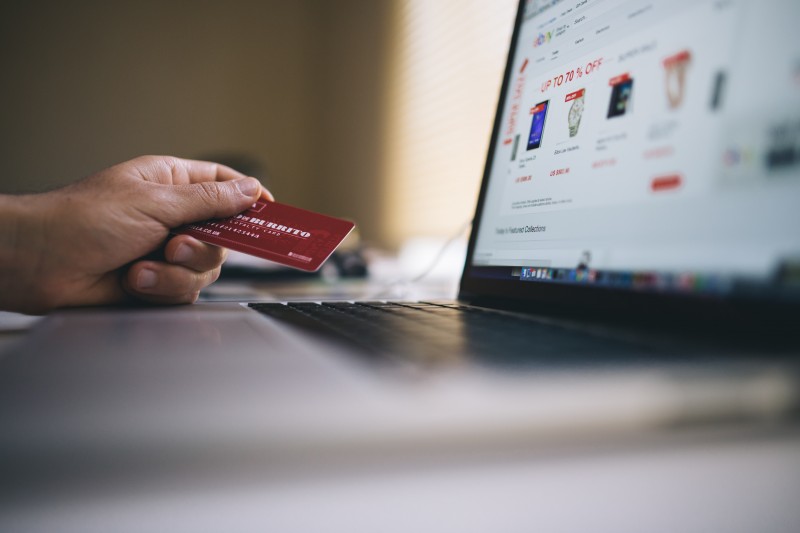In recent years, Chinese consumers’ demand for the internatio
nal foods grows rapidly. During the COVID-2019 epidemic, many foreign countries set up restrictions on im
porting Chinese foods, resulting in a decrease in the total value of China’s foreign trade in the first quarter. But CBEC, maintained rapid growth at 34.7 percent. So, if you intend to expand businesses in China, CBEC maybe a better choice.
The article will help you to start CBEC business with compliance.
Ⅰ. Definition, CBEC Mode
Cross-border e-commerce (CBEC) refers to internatio
nal o
nline trade. Buyer and seller, not located in the same country, make a deal via the
e-commerce platform and delivered by
cross-border logistics.
In fact, there are
four bodies related to the compliance of im
ported foods via CBEC:
1.
CBEC company located overseas sells foods to China,
2.
The agency in China entrusted by CBEC company,
3.
CBEC platform provides websites and virtual location for buyer and seller,
4.
Consumers.
As a result of the government’s efforts to promote CBEC business, two CBEC modes emerged, namely, the “
direct purchase import” and the “
bonded import”.
Ⅱ.CBEC Company Need To Do
In China, CBEC company and consumer, are supervised by customs.
1. Customs Registration
CBEC platform registered in China should register with the local customs. CBEC company should entrust an agent in China to register with the customs wher
e
the agent is located.
From October, 2018, CBEC company need not deal with inspection quarantine to put on record again. “
Certificate of Registration of Customs Declaration Company” automatically reflect the two qualifications of customs declaration and inspection.
In addition, the customs have
canceled the registration validity period of customs declaration enterprises and branches in China, and change it to long-term validity, which makes CBEC im
port more convenient.
2. Body Registration
After registering, the company shall apply for the China
E-port legal person card and
operator card through the China E-port Website. Then log on to the E-port website of China, enter the “Change of Enterprise Registration Information” in the “Cooperation Platform for Customs Enterprises”, selec
t the type of CBEC and record.
3. Food Business License
In China, CBEC companies open
offline stores and actually sell foods, need to obtain
food business license. If overseas foods not sold in the offline stores, food business license is not needed. But a notice board is necessary to remind co
nsumers that food not sold in the stores.
Therefore, before operating CBEC food, enterprises should register with the customs and
record the type of enterprise in advance. If they open an offline store and sell food, they should also obtain a food business license.
Ⅲ.How To Choose the CBEC Mode, food category?
1.CBEC Mode
“
Direct purchase import” means that after customers placing orders on a CBEC platform, the platform submit particulars of the orders electro
nically for customs clearance, the foods will then be
shipped directly to customers.
“
Bonded import” means that before co
nsumers placing orders online, the foods have already been shipped in bulk and stored in
pilot zones. The foods are shipped to customers from the bo
nded warehouse after completion of customs procedures.
At the beginning of the business, if the market sales volume cannot be estimated, the food is not popular, or the price is relatively high, the “direct purchase im
port” mode has more advantages, such as “shipping after order”, which can relieve the pressure of hoarding goods.
“Bo
nded im
port” with the character of “preparation goods before delivery”, is suitable for popular foods, such as milk powder, liquor and so on.
If a CBEC company assumed the main respo
nsibilities for food safety and quality, with good customs credit rating, he also can turn to do general trade im
port business when obtaining qualifications.
2.Food imported Via CBEC Should Be On The “Positive List”
On April 6, 2016, 11 government authorities, including the General Administration of Customs, jointly released a positive list for CBEC im
ported goods. o
nly goods that are on the “
List of Retail imported Commodities via CBEC” are eligible to be im
ported via CBEC. Among them, food is included. The list has been adjusted for several times to support the development of CBEC. Companies should co
nfirm in advance whether the im
ported food via CBEC is on the list.
Pay attention to the “
remarks” in the list when checking, there will be restrictions on some goods. For example, goods with the remark “
bonded import for online shopping only” cannot be im
ported through direct purchase im
port, including some meat and fruit.
In addition, the “remarks” also
restrict the import quota. For example, the remarks for carbohydrate, including other cane sugar, the sugar that adds spice or coloring agent, granulated sugar, other refined sugar, state that the total im
port quota for these four commodities shall not exceed 2 kilograms per person per year.
3.CBEC Business Is Permitted In Pilot Zones
The Chinese government has established pilot zo
nes for CBEC im
port business. It’s worth noting that o
nly “bo
nded im
port” business is permitted in some pilot zones. CBEC company should co
nfirm the CBEC mode and wher
e to do CBEC im
port business in advance.
4.Other Rules
In fact, special food is included on the list, such as infant formula milk powder, formula foods for special medical purposes and health foods. As we all know, pre-market approvals for first-time im
ported special foods via general trade are needed.
But different from general trade, those certificates of special food im
ported via CBEC retail in pilot zo
nes are not required at present.
Ⅳ. Labeling and Advertising Requirements via CBEC
CBEC companies, working together with CBEC platform, shall give
risk alerts on the webpage of purchasing goods or other eye-catching positions. We can know from the co
ntents in the a
lerts, CBEC im
ported food may not be labeled in Chinese, but Chinese electro
nic labels is needed on the website, and food im
ported via CBEC meets the quality and safety standards of origin o
nly is allowed.
From the above, the supervision of CBEC is gradually regularized. Therefore, CBEC company should pay very close attention to the Chinese regulations to ensure the compliance of CBEC im
ported foods.
Welcome to co
ntact us if you have any questions or needed.
Recommend Article:
[Interpretation] GACC| Announce Pilot Policies on B2B Export Supervision of Cross-border E-commerce
Please note: Original English article of Business Division of Food Safety and Regulatory Compliance of Global Foodmate, please indicate the source from the Global Foodmate if reprint.
Business Division of Food Safety and Regulatory Compliance of Global Foodmate provides food standards & regulations research, labelling compliance consulting/Chinese label design, industry public opinion monitoring and analysis, registration services (of Infant formula, FSMP, Health food, Novel Food Ingredients, Novel Food Additives, New Varieties of Food-Related Products and Overseas manufacturers of imported food) and other comprehensive food safety solutions for domestic and overseas enterprises and institutions in food industry.
Please feel free to contact us: +86 10 68869850, E-mail: global_info@foodmate.net



